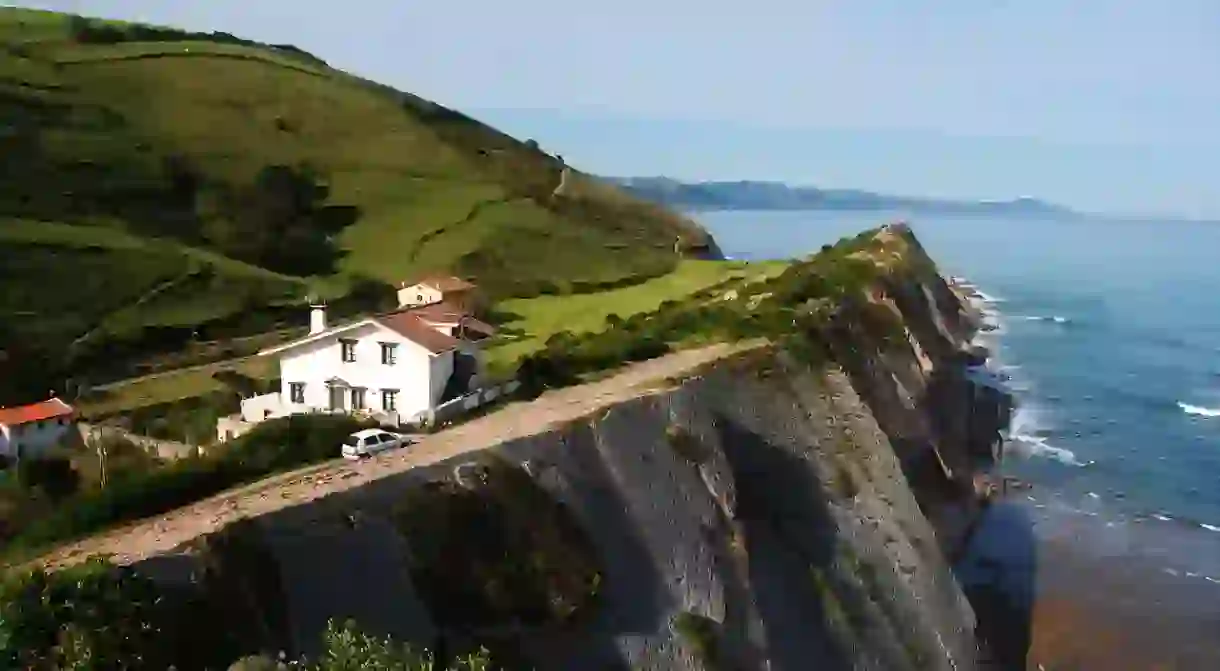10 Things to Know Before Visiting the Basque Country

The Basque Country is a unique part of Spain located on the country’s northern coast, and like many places in Spain, it has its own culture, identity, food and even language. Here are 10 things to know before visiting the Basque Country.
It has its own language
Don’t be surprised if you hear something other than Spanish while walking down a Basque street or if you see signs in a strange language with lots of x’s and z’s. The Basque people actually have their own language, which is completely distinct from Spanish. In fact, it’s unlike any other language in the world and is the oldest language still in use today. Not everyone in the Basque Country can speak Basque, however, and you’ll find that everyone speaks Spanish as well. There is currently a movement to teach Basque to more children and make it a more prominent language in the region.

The region has become world-famous for its unique cuisine
In recent years, the Basque Country has become world-famous for its cuisine and for producing several top chefs who’ve earned countless Michelin stars for their restaurants. Although Bilbao and Vitoria-Gasteiz have a handful of Michelin-starred restaurants, the undisputed queen of Spanish foodie cities is San Sebastián, which has more Michelin stars per square kilometre than any other city in the world, besides Kyoto in Japan.

They don’t eat tapas there, they eat pintxos
Don’t make the mistake of saying you’re going out for tapas while in the Basque Country—they do pintxos instead. Pintxos are essentially small pieces of bread topped with a variety of ingredients, though some don’t come with bread at all. Pintxos differ from tapas in that they are smaller, are not served on a sharing plate and are eaten by just one person in a few mouthfuls. They are also laid out along the bar and you can help yourself to what you like, as opposed to ordering from a menu. Each pintxo will have a stick through the middle holding it together. Make sure to keep these sticks on your plate so that at the end of your meal, the person tending the bar can count them up and give you your bill.

Part of the Basque Country is located in France
The Basque Country is not only restricted to Spain—areas of it also spill over Spain’s border with France. Places such as Hendaye, Biarritz and Bayonne are officially part of France but share some customs, traditions and languages with their neighbours in Spain.

The Basques have their own sports
The Basque national sport is called pelota and is similar to squash or handball, although it can be played with racquets, bats or curved baskets. It is one of the fastest ball sports in the world. The Basque people also still practise many rural sports, such as aizkora (woodchopping) and harrijasotze (stone lifting).

There was a strong independence movement there
For many decades (going as far back as the late 19th century) the Basque Country maintained a strong independence movement in hopes of separating from Spain. ETA was the most notable group who wanted independence—it bombed several places in Spain between the 1960s and the early 2000s. Despite many people still wanting independence,the group said they would not carry out any more attacks in 2010, and in 2017, it handed in its weapons and disbanded.
It’s dotted with many natural parks
While most people head for the Basque Country’s main cities, not many know that it’s a great region for nature lovers, too. It’s home to several natural parks and nature reserves such as Aizkorri-Aratz, Urkiola Natural Park, Gorbeiako Natural Park and the Urdaibai Biosphere Reserve. The ecosystems of these parks range from wetlands and rolling pastures to high mountains and plateaus.

It’s one of Spain’s best places to learn to surf
Spain isn’t particularly associated with surfing, mostly because the swell isn’t big enough in many places, but in the Basque Country it is. The Basque Country has in fact become world-famous for its excellent surfing conditions and holds many international competitions.

The region is home to three major cities
The three main cities and cultural centres in the Basque Country are Bilbao, San Sebastián and Vitoria-Gasteiz. Each one has its own identity and is worth a visit in its own right, but all are home to excellent museums, restaurants and spectacular scenery.

It’s one of Spain’s big modern art centres
In the last 20 years or so, the Basque Country has become synonymous with world-famous modern art, and not just because the Guggenheim was built in Bilbao. San Sebastián is home to a few of Basque sculptor Eduardo Chillida’s works, while Vitoria-Gasteiz is home to the famous Artium Museum.














